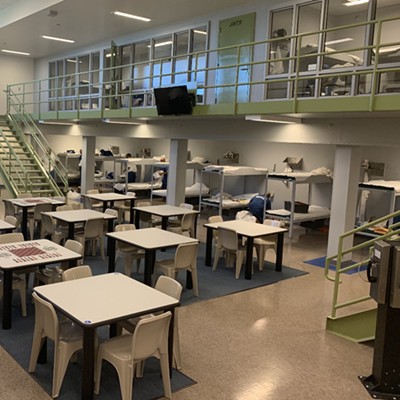The California Department of Pesticide Regulation released its most recent study on pesticide use on Dec. 27, and some Santa Barbara County growers were forced to destroy food products that tested positive for illegal levels of pesticide residues.
During its 2017 survey of pesticide use, the Department of Pesticide Regulation collected and tested 3,695 samples of produce from 28 different countries throughout the year, according to the 2017 Pesticide Residues in Fresh Produce report. Produce products taken from various grocery stores, farmers' markets, food distribution centers, and other outlets throughout California were tested for more than 400 types of pesticides using equipment operated by the California Department of Food and Agriculture.

Tests showed that the majority of fresh produce collected met national pesticide residue standards, maximum amounts of pesticide residue that can be present in fruits and vegetables set by the U.S. Environmental Protection Agency. About 96 percent of all samples had no detectable pesticide residues or tested below legal levels.
About 25 percent of those produce samples were California grown, and of those with a California label, about 5 percent tested positive for illegal levels of residue. While those levels did not pose any health threat to consumers, the report shows that nine of those 30 illegal samples were grown in Santa Barbara County.
Rudy Martel, assistant agricultural commissioner of Santa Barbara County, said that once the Department of Pesticide Regulation released its results, the agricultural commissioner's office investigated each of the growers whose produce samples were found to have illegal levels of pesticides.
County officials went to each site, Martel said, and attempted to determine who applied the pesticide and where it originated. There was no evidence suggesting that any Santa Barbara County growers purposely applied illegal levels of pesticides, and no disciplinary action was taken, according to Martel.
Still, some growers were forced to destroy their products that tested positive for higher than legal levels of pesticide residue, and crops including carrots, kale, and cilantro were disposed of.
Charlotte Fadipe, assistant director of communications with the Department of Pesticide Regulations, said that some samples test positive for pesticide use even if a pesticide was applied in the same area 40 years ago. A positive test doesn't always mean farmers are currently using pesticides.
Californians for Pesticide Reform, a statewide coalition working to strengthen pesticide restrictions, released a statement on Dec. 28 stating that the rates of illegal pesticide use are still too high, but Fadipe said those rates have remained consistently low for years.
"If you get 96 percent on a test in school, that's an A," Fadipe said. "Ninety-six percent is excellent. It shows that the growers are following our rules."









